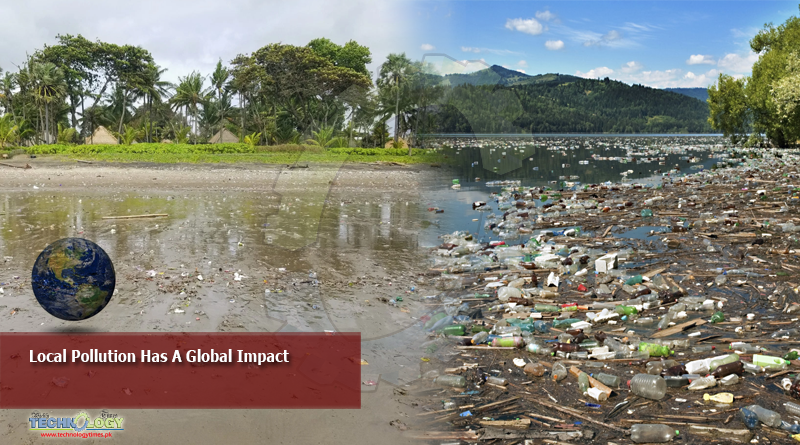Pollution especially stuff dropped into rivers, lakes, and streams has to go somewhere. Littering in rivers is a common thing in many countries.

In many areas of the world, basic refuse management systems are lacking or people are just too lazy to walk over a trash can to properly dispose of their water bottle, plastic bags, or papers. As a consequence, rubbish often ends up in rivers and streams which naturally carry the waste out to sea.
The practice is really bad for the environment and in Northwestern Washington alone over 2.5 million pounds of litter is dumped and ends up in the rivers and streams. Not all of the trash is visible, especially when it comes to microscopic nuisances like microplastics and chemical toxins, but it’s there. Not only does it harm humans who play in the rivers, streams, and oceans, but it harms wildlife, too. You don’t have to play in the water to be impacted. The fish you eat, especially larger species like salmon and tuna, also eat those microplastics and chemical toxins and pass them along to you.
Something people don’t think about when they drop trash into the rivers is that it comes right back to them in the form of the food and water they eat and drink. A great example of how local pollution has a global impact is US trash washed up on a beach in Ireland earlier this year. In 2015, Matthew Bonnette, a Louisiana State University Tigers fan, accidentally dropped his LSU hardhat into the Mississippi River. It was pretty much gone for good, or so he thought.
Fast forward 5 years when, earlier this year, a man named Liam McNamara was walking along the beach in Ireland when he found Bonnette’s hardhat. It washed ashore, completing a journey over 4,300 miles / 7,000 kilometers from Belle Chasse, Louisiana, in the United States to Fanore, Co Clare, Ireland, where it eventually washed up. Bonnette was working along the river back in 2015 when the hat fell off into the great Mississippi River, just before his son was born. “That means that the hard hat has been on its journey as long as our son has been alive!” his wife Nicole Bonnette said to McNamara on Facebook.
The connection was made from a fan of McNamara’s Facebook Page who recognized a sticker promoting the IUOE25, which was a division of the International Union of Operating Engineers. After a plea on their Facebook page, the hat was traced back to Matthew. “It is stories like this that keep me addicted to beachcombing,” McNamara wrote on Facebook.
This touching story is a simple visual that shows what happens to the trash people throw into rivers, streams, and even lakes. In many cases, the pollution is intentional. People too lazy to walk over to the trash can or even too lazy to bring their own bag for trash just drop it into the river. Out of sight, out of mind. In the case of Matthew Bonnette, this wasn’t pollution, but an accident, yet it proves that what we put out eventually comes back to us, like a boomerang. So, before you carelessly toss a piece of plastic on the ground, remember, it just may find its way back to you, whether in the form of food, water, or something else.
Courtesy: Cleantechnica
